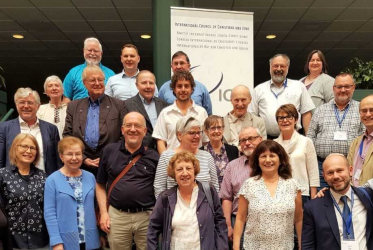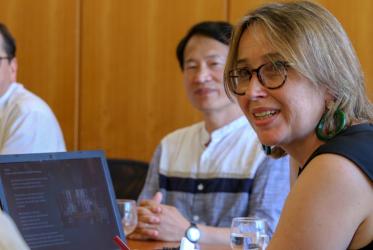Displaying 41 - 60 of 211
06 February 2020
WCC invites media to the launch of Current Dialogue
06 February 2020
WCC condemns attack at Hanukkah celebration in New York City
29 December 2019
WCC Executive Committee meets with eye toward busy future
20 November 2019
WCC delegation meets with Korean prime minister
19 November 2019
The cry of the Papuans in Indonesia
14 November 2019
A passionate Korean feminist and ecumenist
21 August 2019
Young peoples movement strengthens influence
15 August 2019
Role of religion being questioned in public event in Norway
14 August 2019
Latest gun violence in US poses challenges for churches
05 August 2019
Dealing with traumas and healing of wounds
04 June 2019












